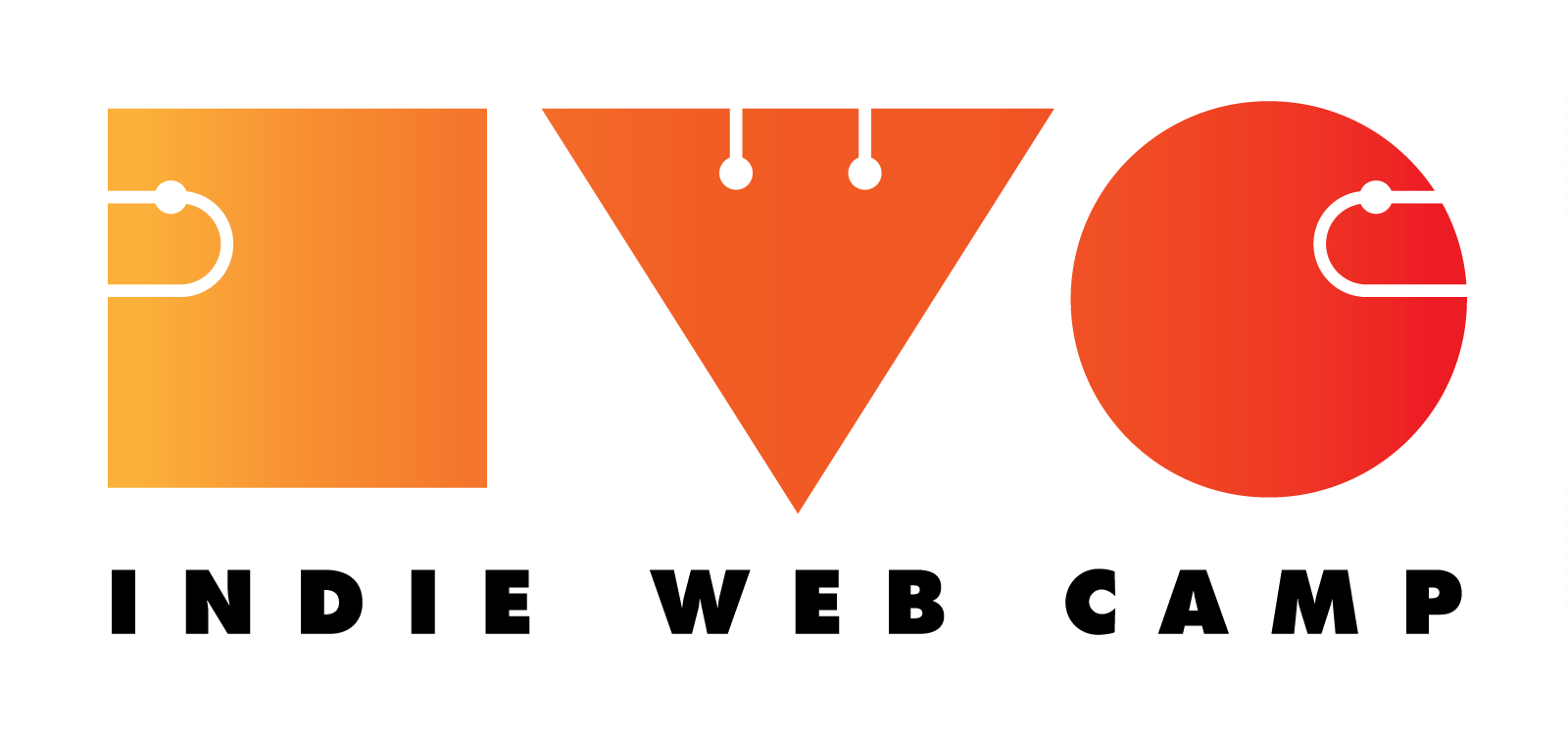Just released mf2/mf2 v0.2.10! This long-awaited update is all the hard work of @dissolve333 and contains some minor parsing algorithm fixes and support for parsing <area> elements. Thanks Ben!
@thatemil AFAIK there’s currently no defined behaviour for HEAD requests to a webmention endpoint, so an empty 405 response is probably the safest bet at the moment.
@t excellent minimal Like implementation! Whilst your homepage performance is admirable, I don’t think you can meaningfully compare it to silo infinite scroll untill there’s some sort of pagination :) Currently, without rel-prev[ious] links, there’s no way for crawlers (e.g. readers like Shrewdness, semi-hypothetical “your year in indieweb”) tools to find your old posts other than fetching each one individually, which for many cases takes too long to provide a good experience — e.g. crawling your years worth of content takes ≈162s, verifiable with the following bash+PHP code:
curl -Ss https://getcomposer.org/installer | php
./composer.phar require taproot/subscriptions
php -a # Start an interactive shell, paste in following code (alternatively save into file):
@(require 'vendor/autoload.php'); $start = microtime(1); echo "Starting crawl…\n"; Taproot\Subscriptions\crawl('http://tantek.com/2014/365/t1/indieweb-like-posts-2015-commitment-done', function ($r) { echo "."; if (substr($r['mf2']['items'][0]['properties']['published'][0], 0, 4) == '2013') { return false; } else { return true; } }); $total = microtime(1) - $start; echo "\nYear crawl for 2014 took {$total}s";
One of the creepiest visible things about Facebook IMO is contact prioritisation in the chat sidebar. Whenever a contact changes places, I think “what did I do to prompt that? What did they do? What maths told Facebook that would optimise my engagement with it? Is it trying to influence me? Am I being experimented on?”.
@parzzix silos gaining an API only means the #indieweb can become silo-friendly. For actual indieweb friendliness, see indiewebcamp.com/friendly
@acegiak that’s hilarious — OTTOMH, h-review p-rating is assumed to be between 0 and 5 as a fallback if no best/worst are given (and even if just best is given, 0 could be assumed to be “worst”). So you could totally publish something like:
<span class="p-rating">1</span>/<span class="p-best">10</span>@elfpavlik HTTP POST urlencoded bodies are supported by every web application framework ever. For everyone to add support for not only a separate vocabulary but a completely different content type is a huge amount of (probably unnecessary) work. What benefits does it bring? Is there existing client software which would immediately work with micropub resource providers if this change was made?
@bastianallgeier given homepage, fetch; parse microformats2, look for representative h-card with photo property
Webmention spam has already started to become a problem, especially thanks to Brid.gy’s backfeeding of twitter comments. For most of us it hasn’t yet been a big problem, but it inevitably will be in the future. There’s some ideas about potential spam prevention tools on the wiki: indiewebcamp.com/spam
Checked into 68 Middle St. for indiewebcamp.com/2014/UK day 1. There’s still time+space for last-minute signups, coming for only one day is fine also!
Subscription issues affecting Shrewdness over the past hour or so should be resolved now, let me know if your feeds aren’t being updated correctly!
@mapkyca good point, I hadn’t considered this problem with hotlinking profile photos before. I think some webmention implementors have started doing this, and I intend to do it within Shrewdness.
It’s worth noting that the attack is not at all limited to profile photos though, rather any photo or otherwise automatically loaded content in the comment e.g. images or audio. Whilst caching profile photos is feasible, caching any media in comments is more difficult, and therefore a good reason for text-only comments.
Text-only content is not an option in Shrewdness, but perhaps instead images could be cached, and other media loaded upon demand, removing the ability to arbitrarily spy on people.
deletedcity.net (via @adactio) looks eerily beautiful. The web-as-city or web-as-countries metaphor is a powerful one. Let’s bring it back! indiewebcamp.com/map
@kartik_prabhu amazing work overall! This is one of my favourite parts though — the fact that fragmention comments fall back gracefully if they’re not supported on either side, and yet all the data required to present them is preserved, so future updates can retro-actively put old marginalia in the right place!
I wonder how tricky it would be to implement this on the comment publisher side too — detecting fragmention URLs and tailoring the reply context content…
Posting a new note having just logged into my site using GPG via indieauth.com!
Update: here’s a short screencast documenting the creation of this note:
Working on #shrewdness I’m coming to realise that there are at least two usefully distinct levels of semantic data on the web:
There’s the basic “object” level at which microformats act, defining simple, basic-level objects like posts and people with properties like name, phone and content.
Then there’s the level at which HTML works, marking up blocks of text and creating a tree of elements, each of which gives context to the text it contains, for example blockquote elements for containing content from another source, code elements for “computer code” (might be some space to make that more useful — who’s up for adding the type attribute to code?) and so on.
So what? So these are the two sufficiently standardised levels at which content on the web can be made portable, and mutually understood by many parties. Any additional undefined semantics introduced by author-defined classnames and the meaning communicated by their default styling is unportable, and will be lost when that content is viewed elsewhere (for example shown in a reader or as a cross-site comment.
So how can you tell if your content is sufficiently portable? For the object-level (microformats) a validator like indiewebify.me can be used. Strangely, there aren’t as many tools for the markup level, but one surefire way to check is to disabled CSS in your browser. Is your content still understandable using only the default styles? If so it’s probably pretty portable.
@worrydream “bookshelf” is completely the wrong mental model. A “list of links” is like a list of postal addresses of places (hence web “address”) as a physical analogy, or the contents of their authors brains as a human analogy. Complaining about their contents changing/disappearing is as complaining that space/time/humans are “a disaster” (which admittedly may broadly be true).
“your bookshelf” is whatever personal archives you make of your favourite things (analogies: photos, notes, physical books), and therefore the solution is better personal archival tools. I’ve made a start — my website automatically takes an archive of every page I link to and stores it as HTML+HTTP headers in the filesystem, which has proven to be a quite robust format.
Of course if you actually have a practical idea about how to improve on the infrastructure of the web, speak up and/or build it :)
Edit: reflecting on this, “completely the wrong mental model” is incorrect, and better expressed as “a mental model which is inconsistent with reality”. There are no “wrong” mental models, only a variety of co-existing metaphors with varying levels and areas of consistency with reality.
.@benwerd talked to any politicians about Known? I realised recently that politics is, broadly speaking, the battle for ideas, fought with language on the field of mass media. I’d much rather the field was platforms which belonged to citizens, rather than states or corporations. Social media is a start, but #indieweb principals can go much further.
Initial draft of a #taproot logo:

Got stuck for inspiration (trees are cliché and, in the UK, ironically associated with the conservatives) so looked on wikipedia, and found this beautiful photo by Stephen Ausmus:
So made a stylised version for a laugh, and actually really like it. It shares some colours with the indiwebcamp logo
whilst remaining stylistically separate and visualises a lot of #indieweb principals: a centralised node split up into a more diverse ecosystem, but still connected by the green strands of standards (many of which are #microformats, also associated with the colour green).
Still a WIP though — thoughts?
Learning about umw.domains, a project to give UMW students+faculty their own personal domains. It’s a great project!
My own has been a place of experimentation and self-expression for years now and I’ve learnt a lot, and connected with many people through it. Anything which makes personal domains more accessible is a move in the right direction.
 Emil Björklund
Emil Björklund Tantek Çelik
Tantek Çelik ☮ elf Pavlik ☮
☮ elf Pavlik ☮ Bastian Allgeier
Bastian Allgeier Dan York
Dan York Bret Victor
Bret Victor Ben Werdmüller
Ben Werdmüller
